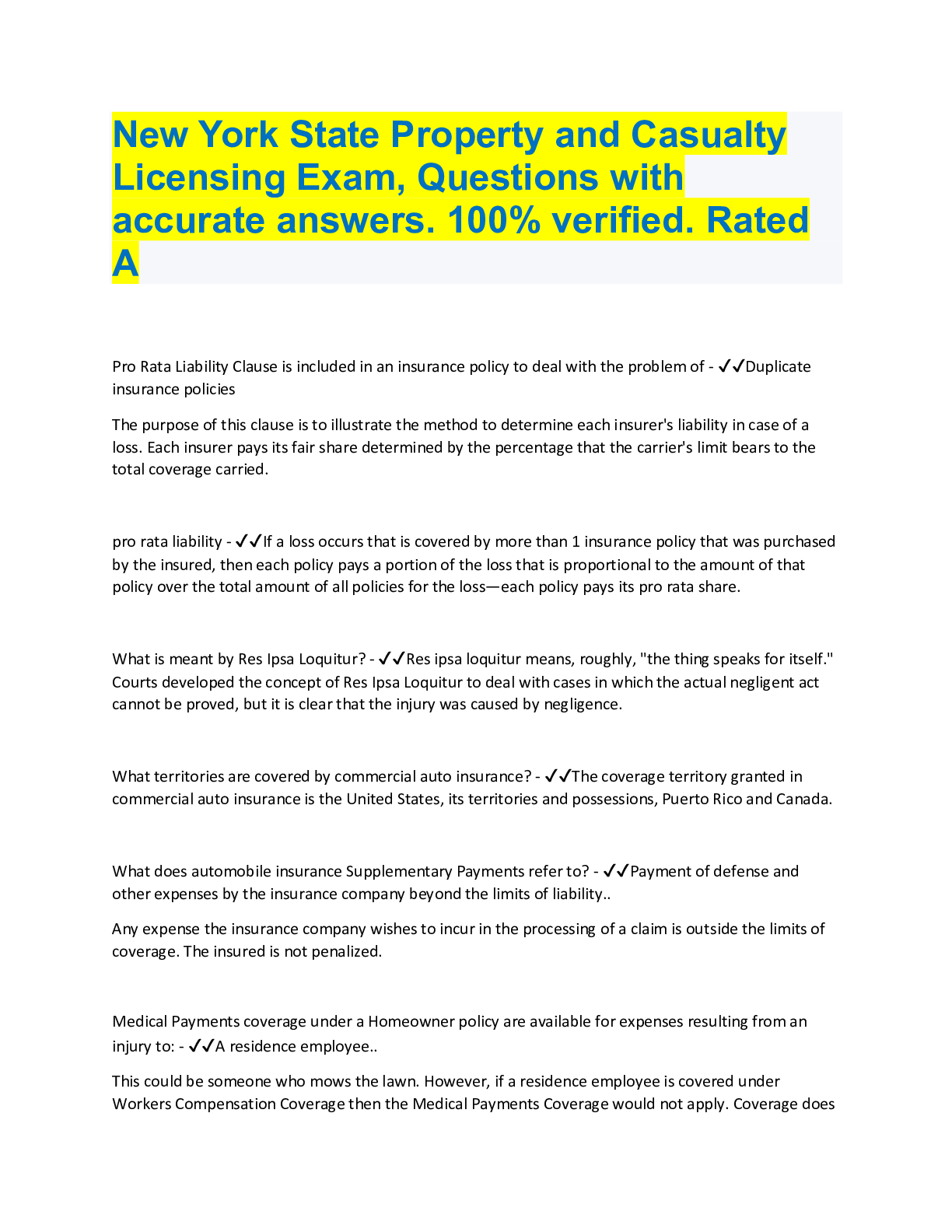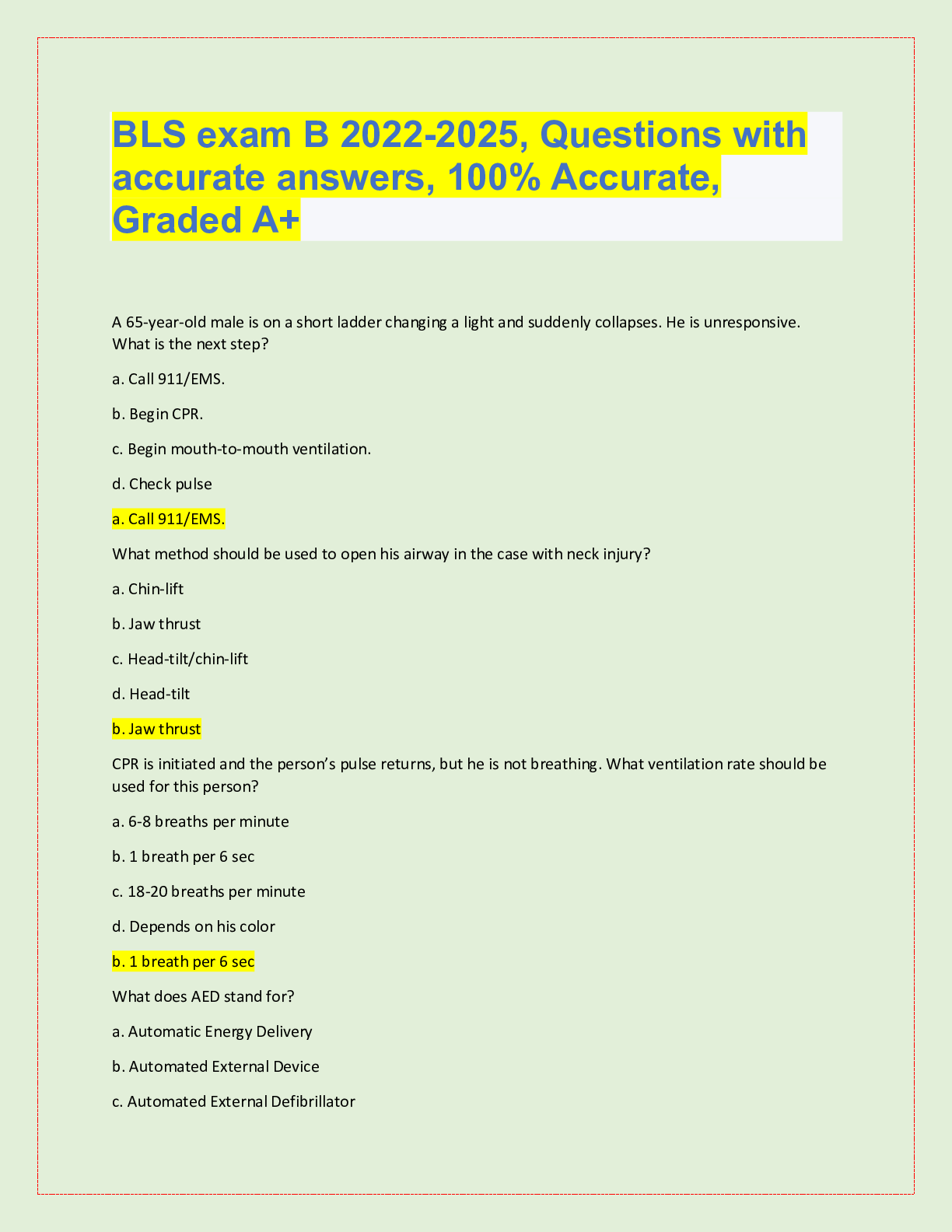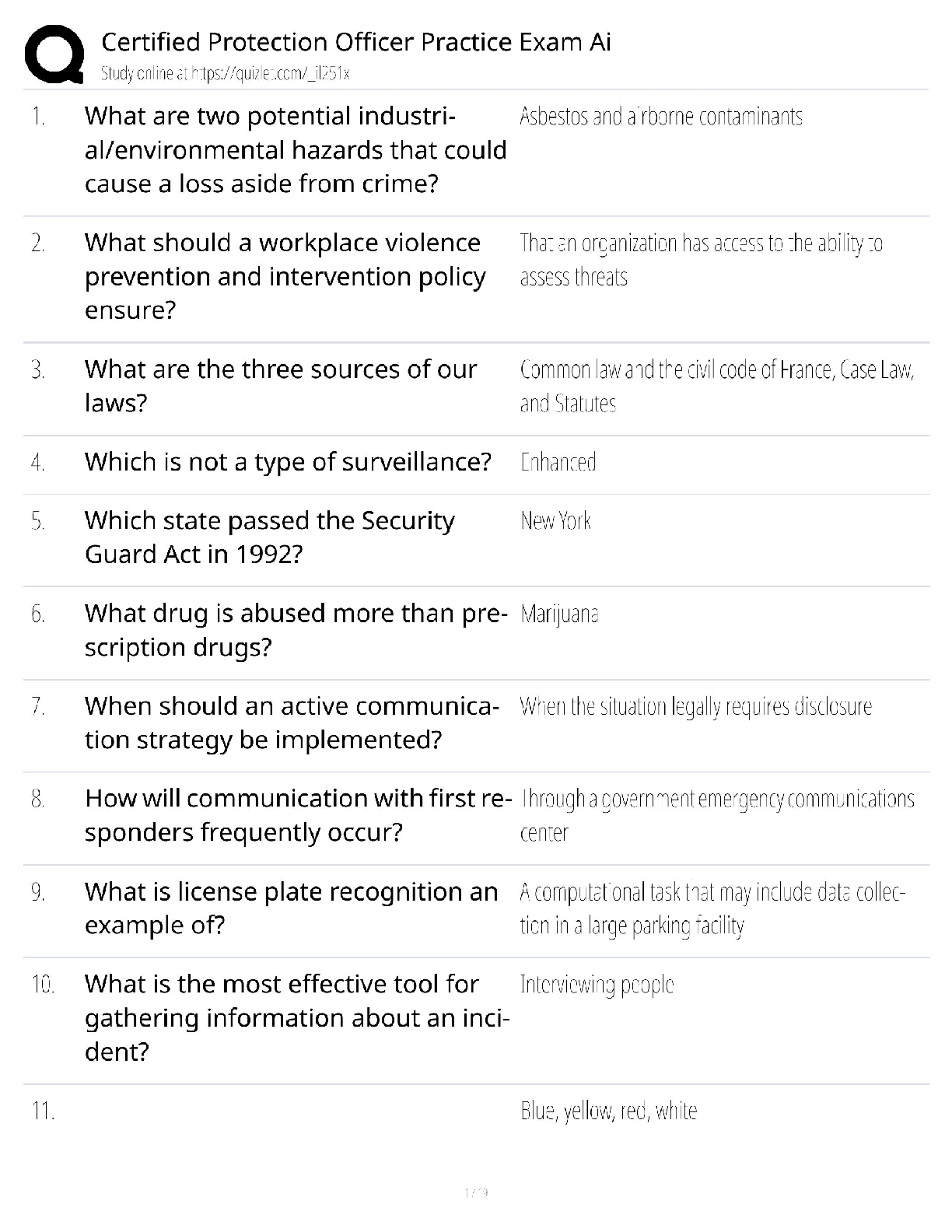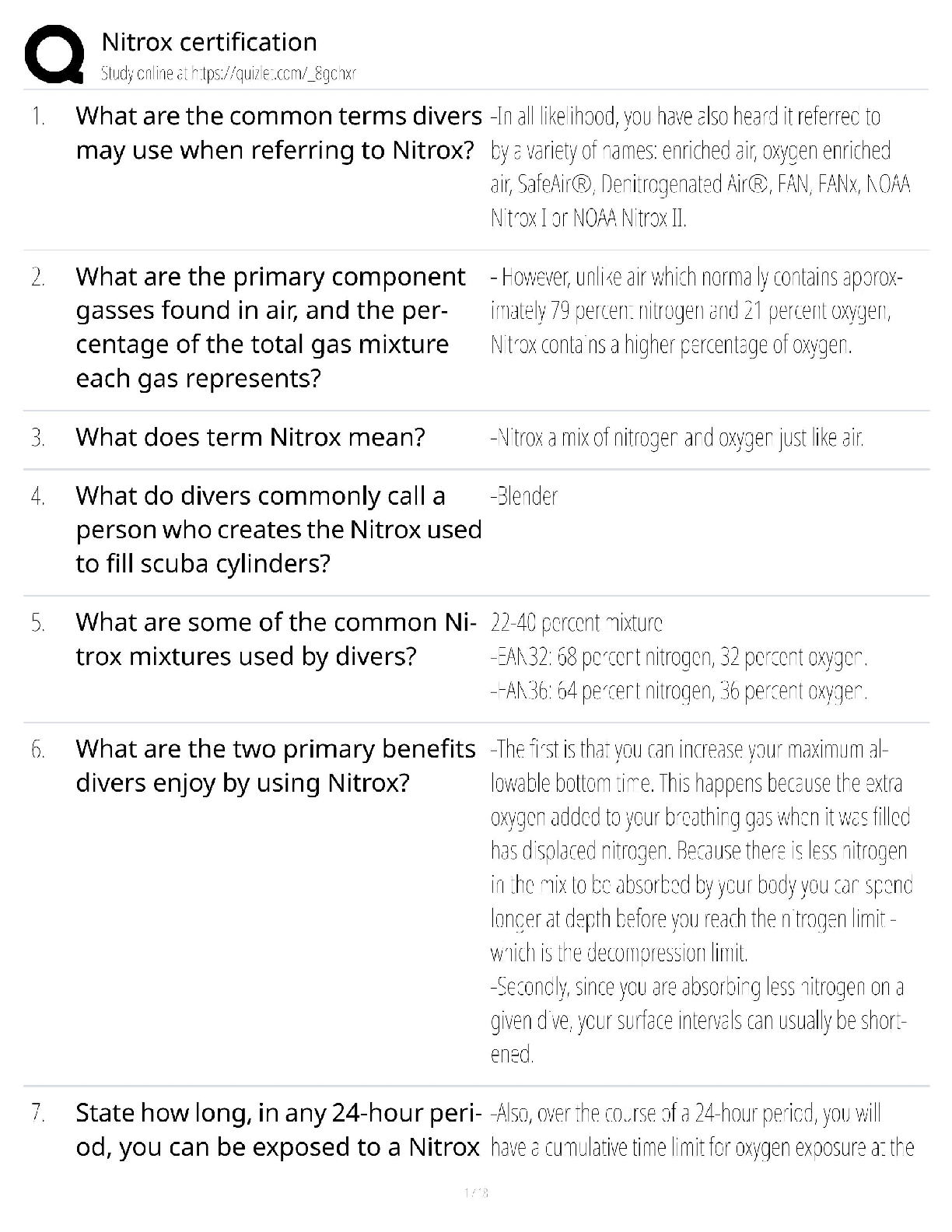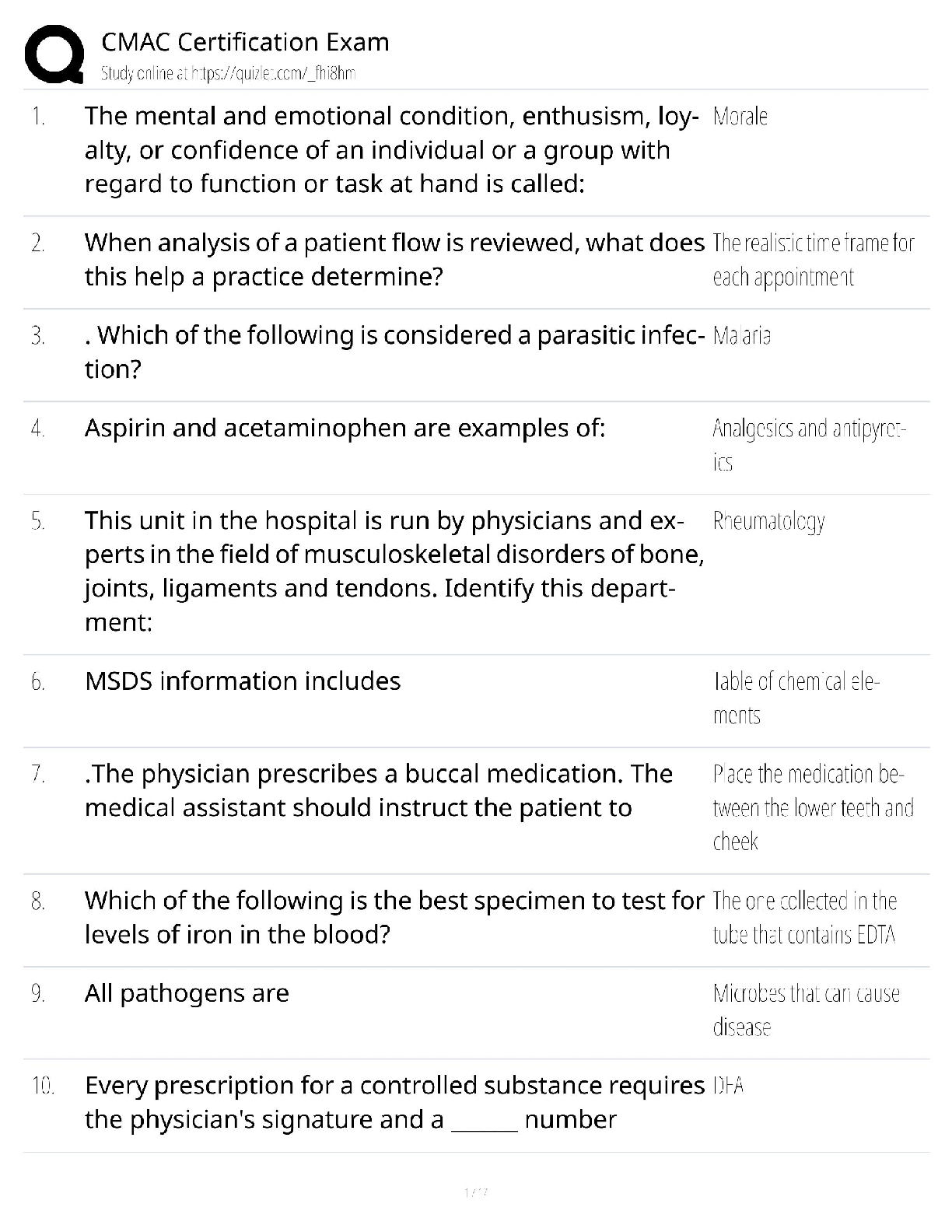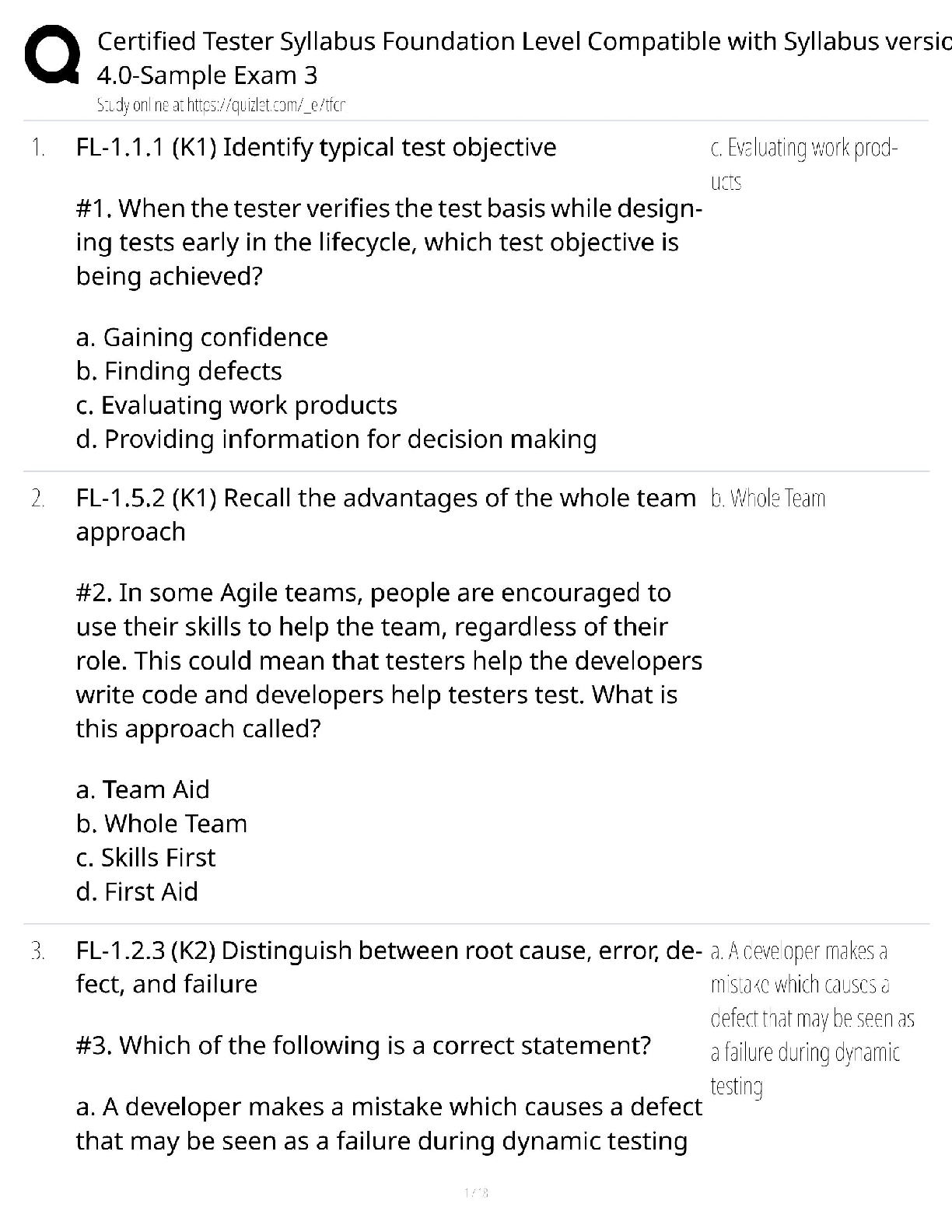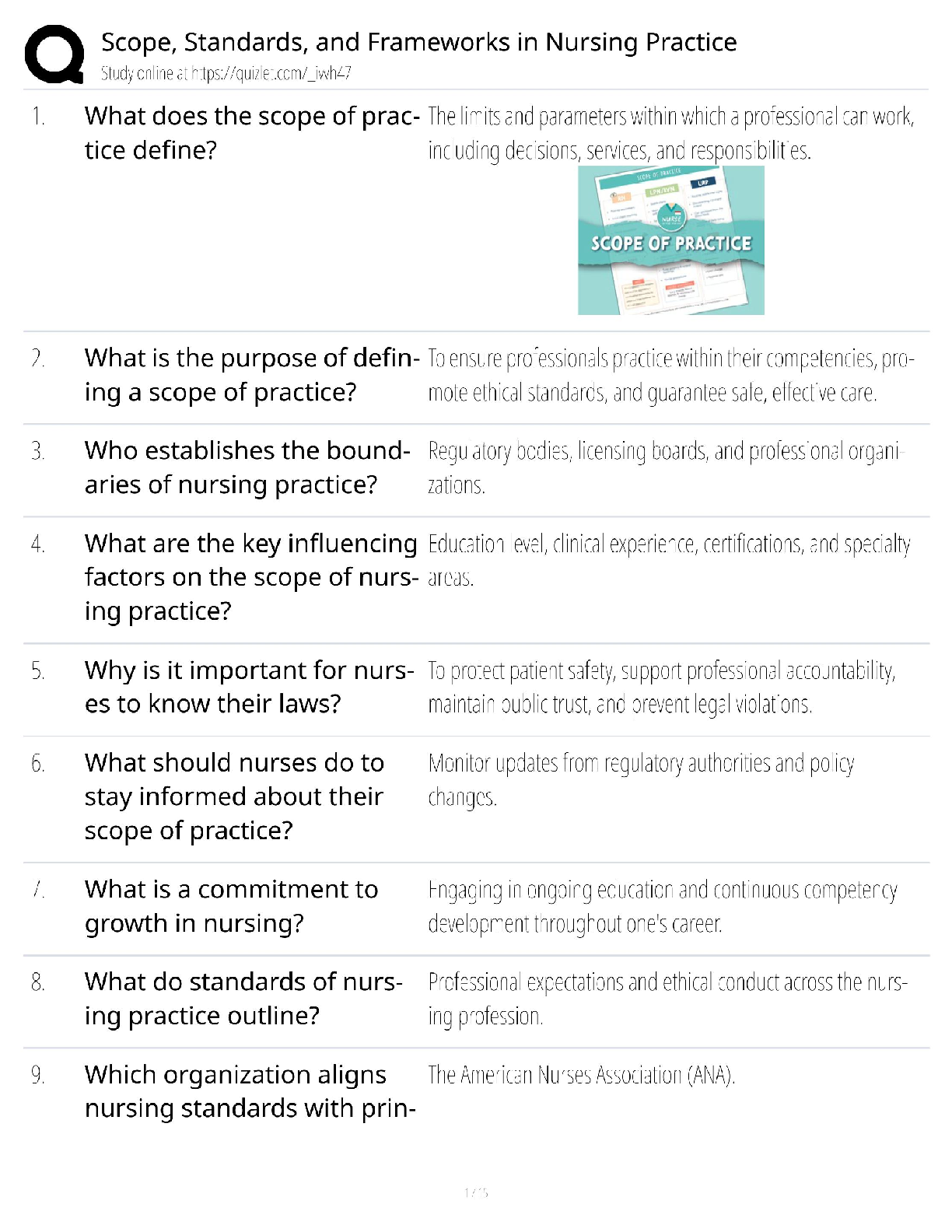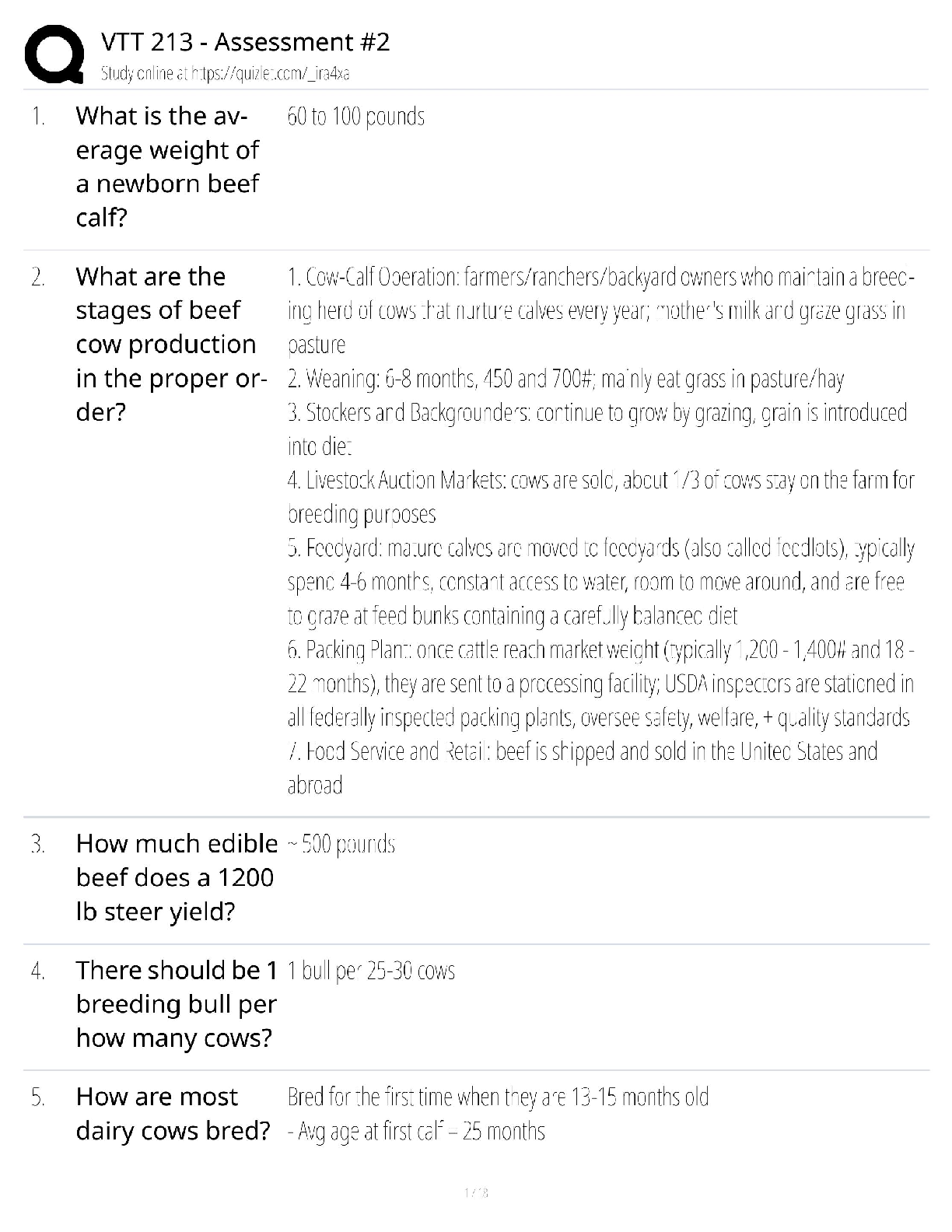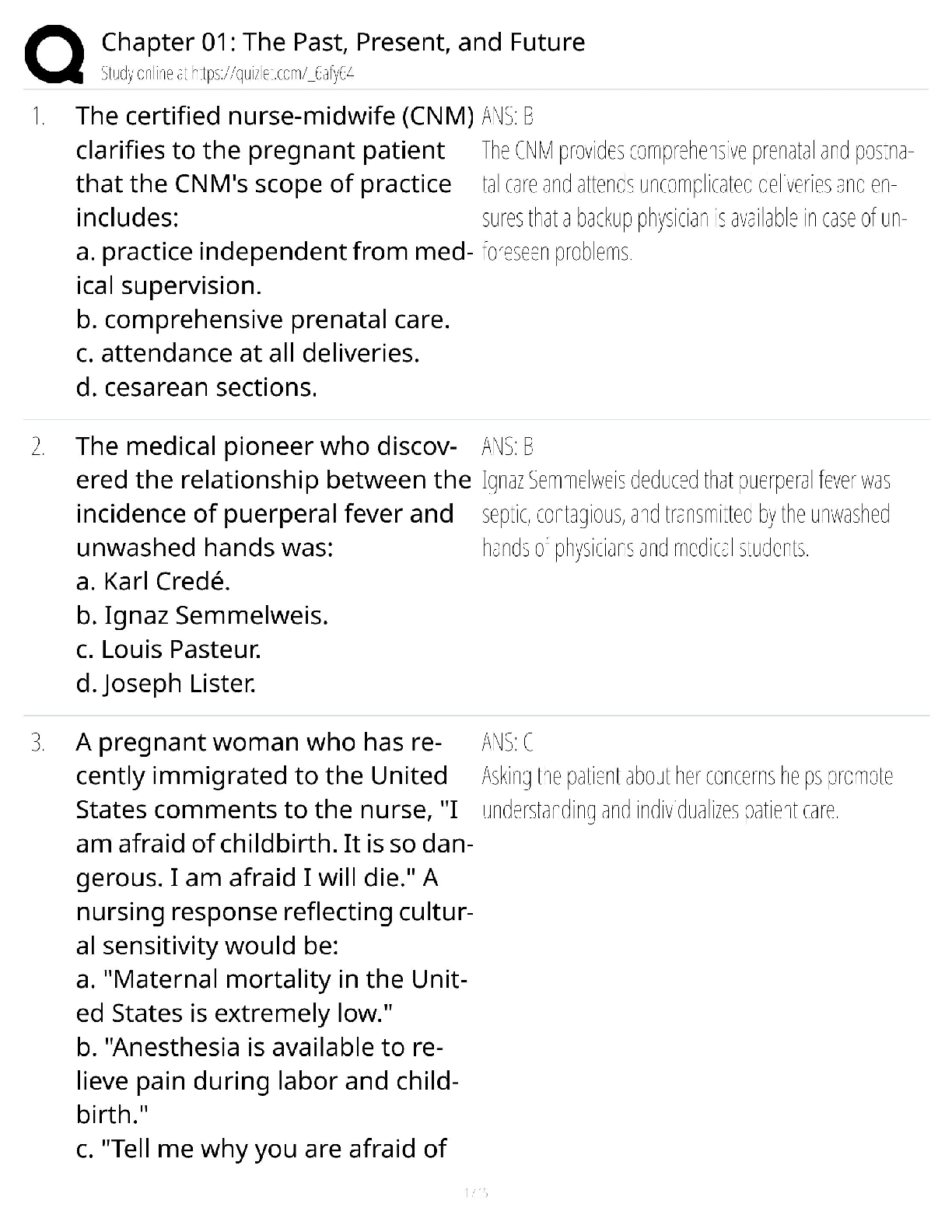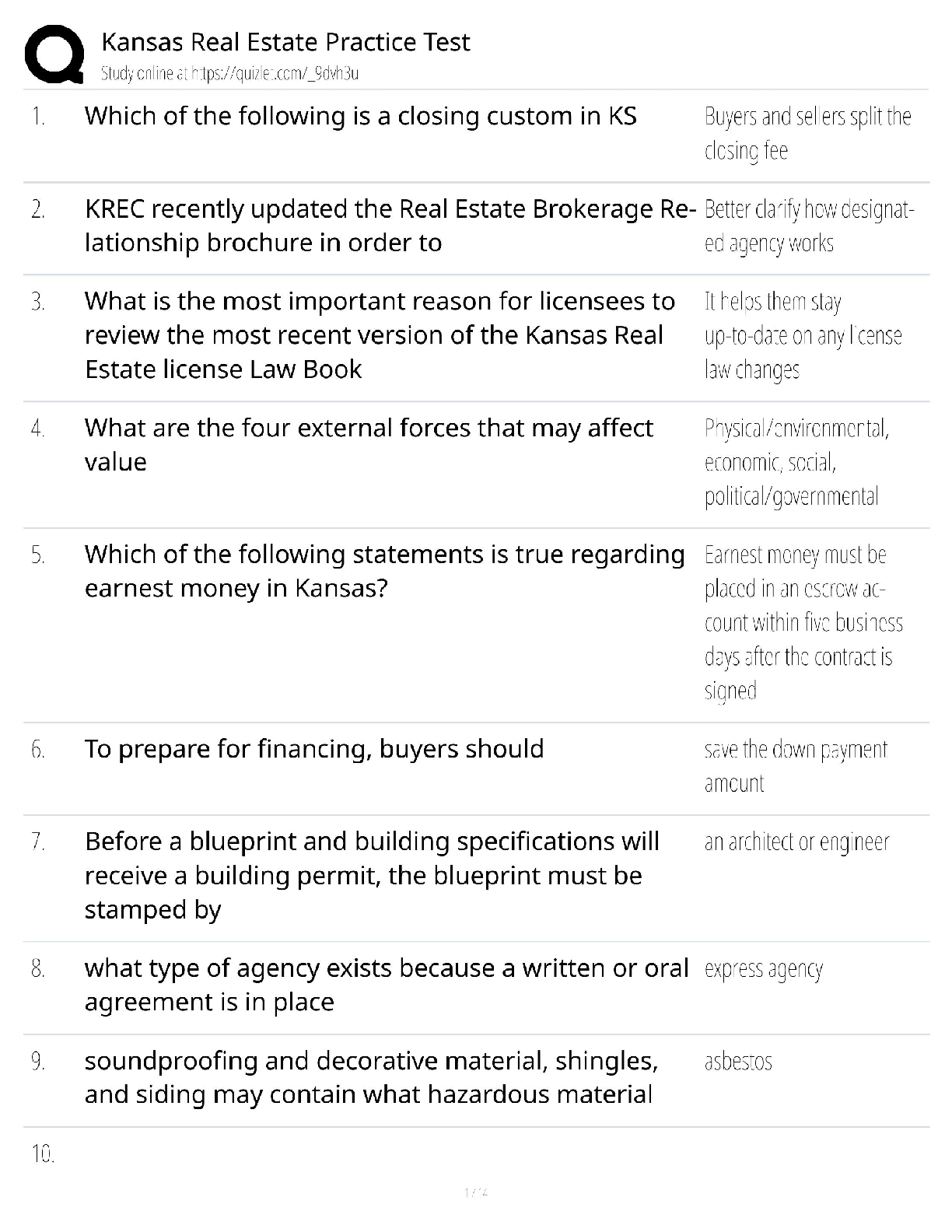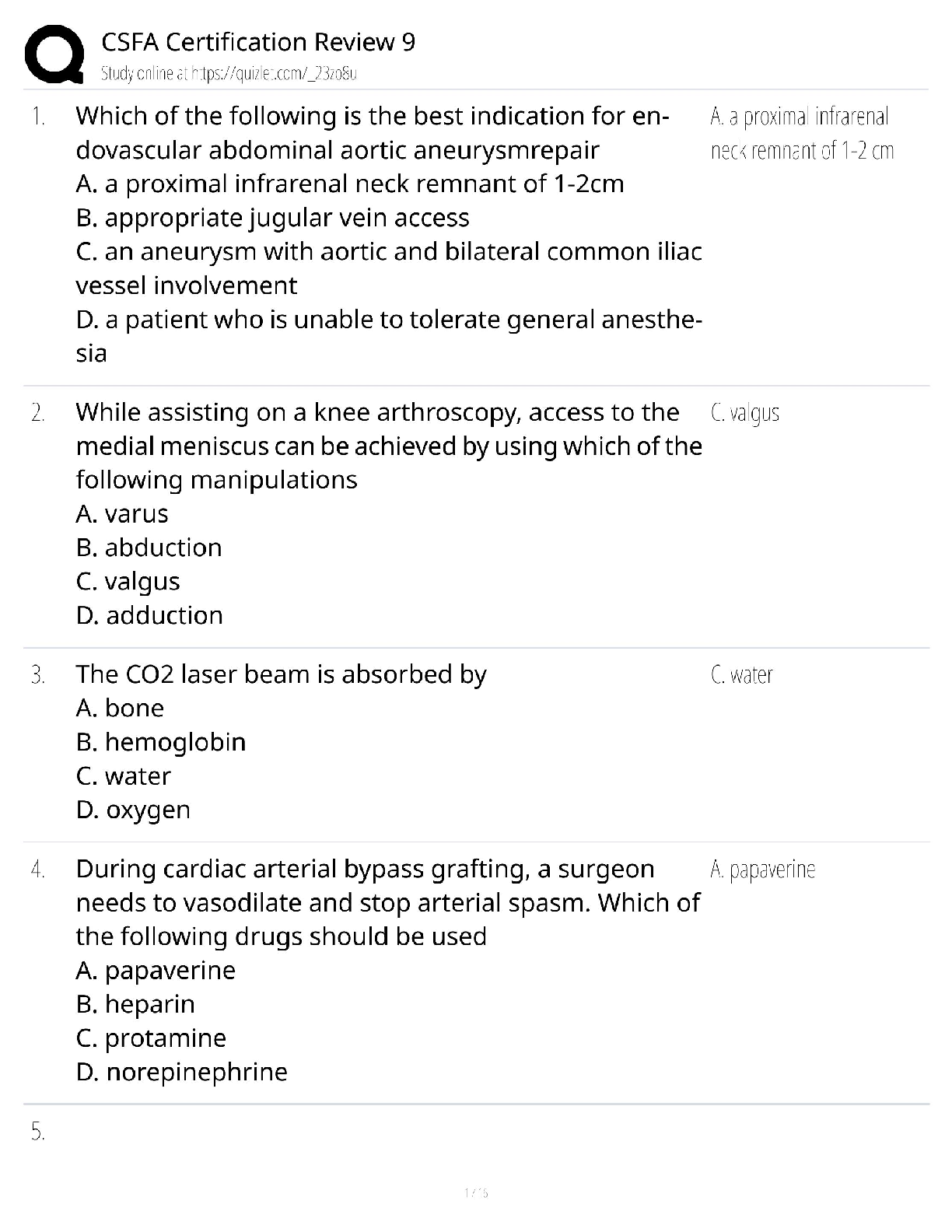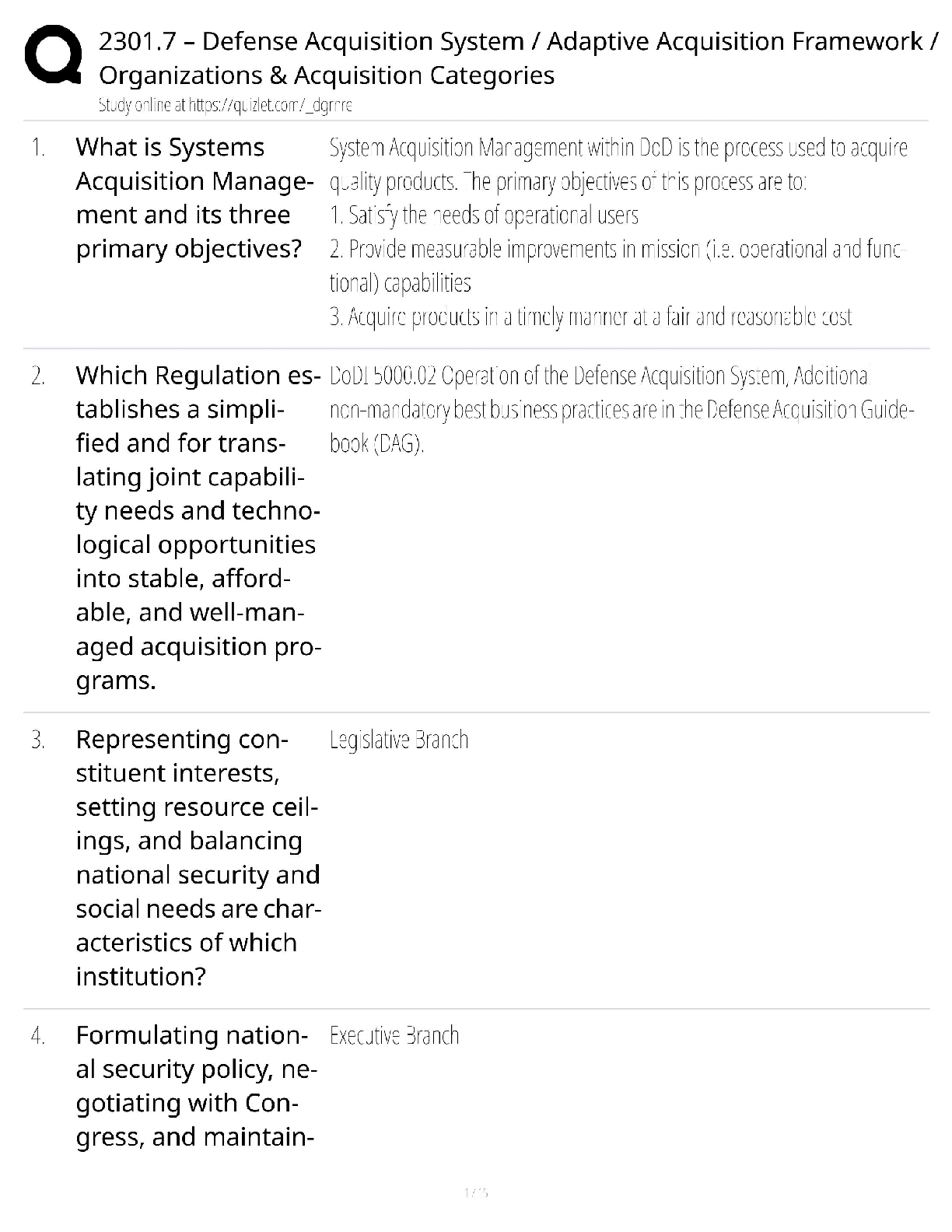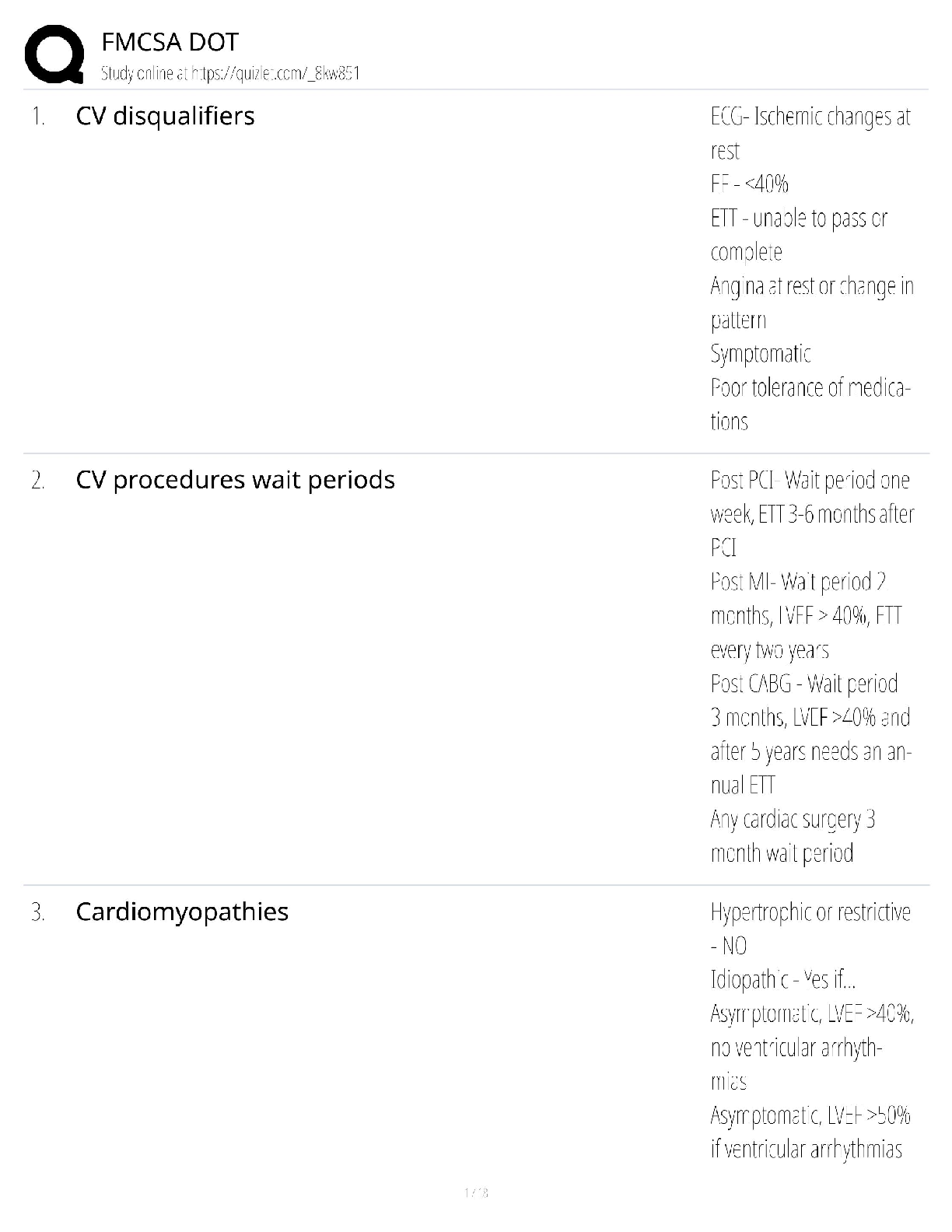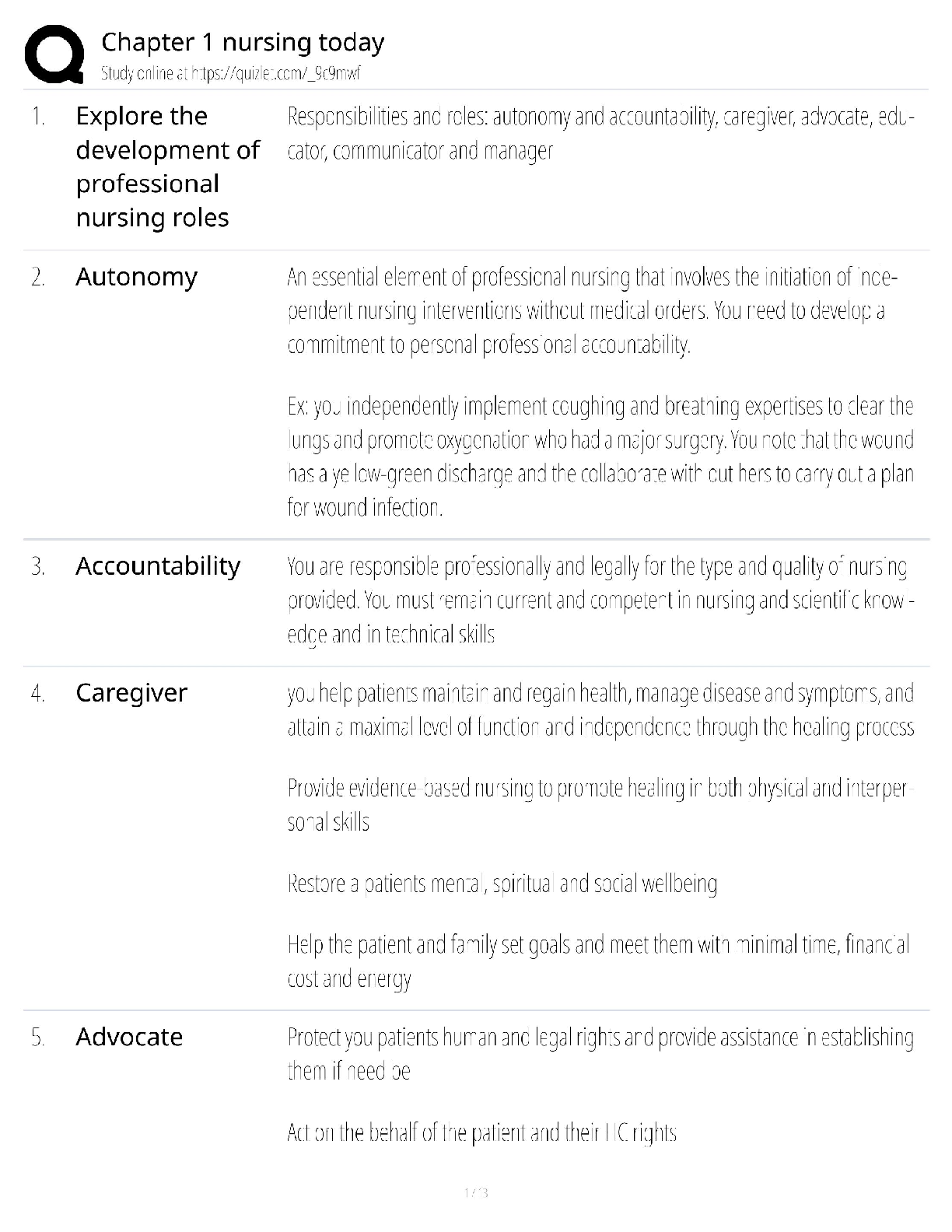FTCE Elementary Education K-6, Exam
Preview Basic Terms. Best recap. 100%
Coverage
main idea - ✔✔-Can be stated or implied.
Code Emphasis approach - ✔✔-Bottom-up. Letter-sounds are stressed. Reading instruction beg
...
FTCE Elementary Education K-6, Exam
Preview Basic Terms. Best recap. 100%
Coverage
main idea - ✔✔-Can be stated or implied.
Code Emphasis approach - ✔✔-Bottom-up. Letter-sounds are stressed. Reading instruction begins with
words that consists of letter or letter combinations that have the same sound in different words.
Meaning Emphasis approach - ✔✔-emphasizes comprehension from the start
Basal Reading - ✔✔-A collection of students textbooks, workbooks, teachers manuals, and other
materials and resources for reading instriction used in kindergarten through 6th grade, not
individualized.
Phonics Approach - ✔✔-teaching reading by first teaching the sounds of each letter and of various letter
combinations
Whole word approach - ✔✔-An approach to reading sating that people can directly connect the written
word with the word's meaning. The whole-word approach argues against "sounding out" an unfamiliar
word. Instead, readers should identify the word in terms of its context within a sentence.
Language experience approach - ✔✔-approach to writing instruction from personal experience; stories
about personal experiences are written by teacher and read together until learner associates written
form of word with spoken; can also be a group activity restating stories read by teacher
Word consciousness - ✔✔-learning activities that stimulate awareness and interest in words, their
meanings, and their power - students enjoy words and are zealous about learning them
Reading Experience - ✔✔-Mercer and Mercer divided the reading experience into two categories : Word
Recognition and Word and Idea comprehension.
Characteristics of Good Readers - ✔✔-1. Think about what they are reading and formulate questions
and answer them
2. Attempt to pronounce unknown words using analogies to familiar words
3. Establish a purpose for reading and make predictions
4. Confirm, make new predictions, and go back when things don't make sense during reading
Stages of Writing - ✔✔-1. Prewriting
2. Drafting
3. Revising
4. Editing
5. Publication
Responding to non-graded writing formative - ✔✔-1. Avoid using a red pen
2. Explain criteria in advance
3. Ask yourself if response is appropriate to assignment
4. Reread and note at the end if the student has met the objective
5. Response should be non-critical
7. Highlight areas you want to emphasis
8. suggest and encourage students to take risks.
Teaching Styles - ✔✔-a teacher's choice of emphasis, instruction, interactions, methods of
communicating, and classroom mannerisms
Task oriented instruction - ✔✔-Teacher prescribes the resourses and indentifies specific performances
cooperation centered - ✔✔-student and teacher plan the course of study
child centered - ✔✔-student plans his or her own course of study
subject oriented - ✔✔-well organized content dictates the course of study
learning centered - ✔✔-combines child centered and subject centered
emotionally exciting - ✔✔-Teachers that teach with more emotion then with structure.
socio-cognitive approach - ✔✔-emphasises the importance everyday teaching a child receives from
adults and older children. Both a child's environment and biological influences are important in
development. Vygotsky primary psych. Different from Piaget because though child's social environment
just as important as biological stages they pass through
(Math)Describing - ✔✔-characterizing an object
(Math) Classifying - ✔✔-sorting objects in terms of one or more criteria
(math) Comparing - ✔✔-Determining if sets are alike or different.
(Math) Ordering - ✔✔-Ex. sorting childen according to age.
Herbivores - ✔✔-an organism that eats only plants.
Omnivores - ✔✔-an organism that eats both plants and animals.
carnivores - ✔✔-Meat eaters
Abiotic Factors - ✔✔-nonliving parts of an ecosystem
Producers - ✔✔-organisms that make their own food
consumers - ✔✔-an organism that obtains energy and nutrients by feeding on other organisms or their
remains.
Darwin - ✔✔-English natural scientist who formulated a theory of evolution by natural selection (1809-
1882)
Theory of Natural Selection - ✔✔-Heritable variation in traits influencing survival (ego reproduction)
exists; therefore some individuals contribute more offspring to the next generation than others
(differential survival and reproduction); heritable traits of these successful individuals become
increasingly more abundant in the population over time; ergo avg. characteristics of the population
change over time as the population evolves
Ecology - ✔✔-the branch of biology concerned with the relations between organisms and their
environment
biomes - ✔✔-a broad, regional type of ecosystem characterized by distinctive climate and soil conditions
and a distinctive kind of biological community adapted to those cond
[Show More]




